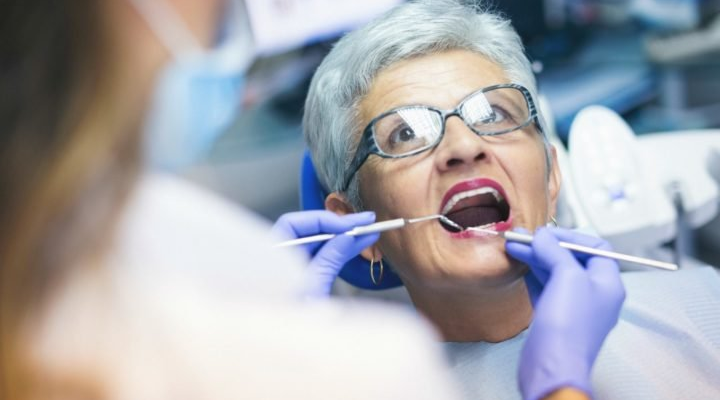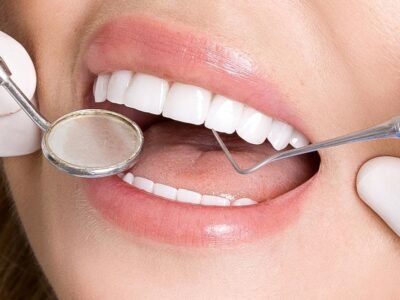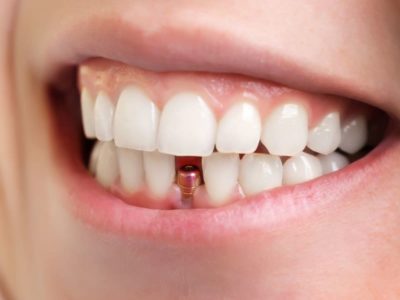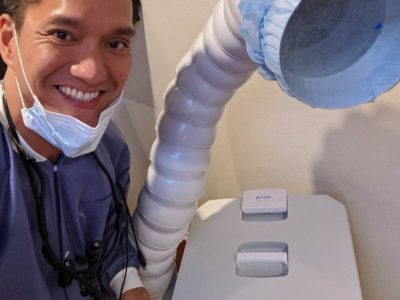Taking extra care of your overall health is critical in their golden years to ensure a long, healthy life is lived. As you age, it is important to frequently visit the doctor for annual exams. Whether it is a routine vision exam, hearing, or dental exam this will help prevent health issues, diseases, and more.
Most of America’s senior citizens have Medicare for health insurance, which provides comprehensive coverage for their healthcare services. With that said, Medicare will pay its share for inpatient and outpatient services, but will Medicare cover dental treatment?
Medicare and routine dental
Medicare will not cover most dental treatment, such as routine exams, dental procedures, cleanings, fillings, dentures, tooth extractions, or other dental supplies. Medicare was not designed to cover regular dental care. Therefore, Medicare will not cover any dental services that are meant to keep teeth healthy.
Medicare will only cover things that are “medically necessary.” Unfortunately, dental exams do not fall into that category. However, Medicare Part A (inpatient services) may pay for dental services received in the hospital.
Medicare Part A will provide coverage in the hospital for an emergency or a difficult dental procedure. With that said, Medicare may cover dental services if it is medically necessary. For example, if one were to break their jaw or if a doctor orders treatment due to oral cancer. In these scenarios, the doctor will have to prove why this service is medically necessary for Medicare to provide coverage.
Now, once the doctor treats ones underlying health condition, Medicare will not cover for any follow-up services. If a senior wants a follow-up exam with their physician regarding their dental surgery, they will have to pay for the full visit.
With that said, there are certain Medicare alternatives to Original Medicare that a senior can apply for that offers some dental benefits.
Medicare Advantage Plans
According to Medicare Resources, 88 percent of Medicare Advantage plans provide some dental coverage in 2020. Many Medicare beneficiaries seek out Medicare Advantage plans solely for this added benefit. However, Medicare Advantage plans can change their benefits year-to-year. Therefore, a senior can have dental benefits one year, and not be available the next, so keep this in mind.
The dental coverage that is built in a Medicare Advantage plan may only have a small network of dentists that a senior can access. Therefore, their Medicare Advantage plan might not provide coverage at their family doctor, so they will need to find a dentist who will accept their Medicare Advantage plan.
Standalone dental plans
If a senior has Original Medicare or a Medigap plan, a standalone dental plan is a reliable option to consider. Seniors can purchase a standalone dental plan through a carrier that offers dental plans — There are also dental plans available specifically for senior citizens.
These standalone dental plans provide coverage for teeth cleanings, fillings, x-rays, root canals, and crowns. Dental insurance companies typically do not change coverage benefits, unlike Medicare Advantage plans. Therefore, making this an excellent option for senior citizens.
Alternatives to dental insurance
Some seniors may not be able to add on dental insurance due to low-income. Seniors who are low-income and qualify for both Medicare and Medicaid can receive dental benefits, such as dentures, through Medicaid. However, coverage varies from state to state, so seniors must check with their local Medicaid office to see if they have these benefits.
Local health departments will likely know of different dental programs that offer free or low-cost dental care, such as dental schools. If there is a dental school nearby, they will often provide free or low-price dental services; This gives the student a chance to practice, while also assisting those in need.
Lastly, another alternative to dental insurance is simply paying out-of-pocket. Many dentist offices allow payment plans, making it easier for seniors to afford the dental care they need.
Although Original Medicare does not cover dental care, there are alternatives for senior citizens to receive the care they need to ensure they can live a healthy life. Contact a Medicare broker today to see what the dental options are in your state and area.












Comments